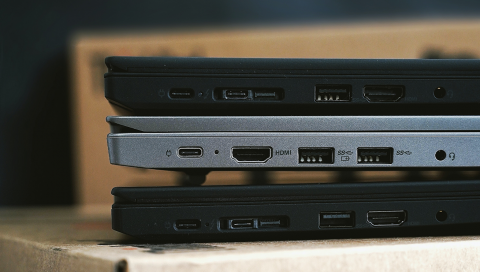Location: Norfolk and Suffolk
ABOUT
New Anglia Local Enterprise Partnership works with businesses, local authority partners and education institutions to drive growth and enterprise in Norfolk and Suffolk.
We are transforming the economy by securing funds from government to help businesses grow, through the delivery of ambitious programmes to ensure that businesses have the funding, support, skills, and infrastructure needed to flourish and ensuring that the voice of our business community is heard, loud and clear.
The Economic Strategy for Norfolk and Suffolk sets out our ambitions to grow our economy, create 88,000 new jobs and 30,000 successful new businesses. We achieve economic growth by securing public and private investment and delivering a range of programmes and initiatives with partners to improve infrastructure, skills and business support.
CLIENT STORY
We worked with New Anglia LEP to provide digital equipment to those who could not access it for job and training opportunities. Read all about it below.
This was a big project with multiple partners but the team at Breakwater IT navigated it with ease. From purchasing of equipment, and the challenges this held, to building and distributing to partners, then supporting with technical queries, the team have worked incredibly hard to very tight timescales. This project has given over two hundred young people digital access, enabling online training courses and apprenticeships as well as job applications and digital skills.
Challenge
New Anglia LEP were searching for an IT provider to support a Digital Inclusion Project across Norfolk and Suffolk. The project aimed to provide digital equipment to those who could not access it. Individuals would then use the equipment to pursue job and training opportunities. This also covered those suffering from data poverty, who were unable to afford home broadband.
Involvement in the project included sourcing and providing laptops and Google Chromebooks. Each device needed to be prepared before being sent to local charities. This included installing software restrictions, internet restrictions, device tracking and software such as Microsoft Office. In addition, security measures were required on the devices, such as anti-virus, anti-ransomware, and anti-phishing management.
Each device also required a Wi-Fi dongle. Allowing users to access the internet. We were pleased to win the tender, enabling us to support such an important project for our communities.
Solution
We were tasked with sourcing, building, and distributing laptops and Chromebooks. Each device required Wi-Fi access via a dongle, as well as a protective case.
We began by sourcing the laptops. At the time, England was entering a second lockdown due to the COVID-19 pandemic. This meant workplaces were sent to work from home once again. This, therefore, made acquiring laptop stock difficult. After multiple order cancellations, we were able to source all the devices required by the project.
Once we had received the laptops, our project team had the job of building them. This included sourcing and installing licences for Microsoft Office and G Suite. We also procured security software, such as anti-virus, to keep the devices secure.
As the devices were being configured, we moved forward with acquiring Wi-Fi dongles. Once received, they were put through testing on the devices. We discovered that the Wi-Fi dongles did not work on the Chromebooks. As a result, these had to be exchanged for Mi-Fi devices. Our team set up the dongles and Mi-Fi devices. Alongside this, SIM cards were set up for each Wi-Fi device.
Once the devices had been fully set up with their Wi-Fi device, the finishing touch was protective cases. New Anglia LEP ordered and shipped these to us. We were then able to package the devices ready to be distributed.
Ahead of distribution, we created PDF and video guides for the individuals receiving the devices. This included how to use the device, set up an email account and using the Wi-Fi devices. Guides were created and webinars were also held for project administrators. The webinars covered how to use admin portals and how to keep the devices secure. These were recorded and distributed afterwards. To support the admins further, a dedicated email and telephone number were set up to one of our engineers.
Finally, in December the devices were delivered by our engineers or collected by the project lead.
Result
As a result of our work with the New Anglia LEP Digital Inclusion Project, over 200 young people who previously did not have access to devices for jobs and training now do. The devices were configured to allow them to switch on with no complicated setups.
The admin teams behind the project are fully equipped with all the training and training materials they need to support those individuals. As the project progressed, we kept a detailed log of each device and SIM card. This allowed the admins to track the devices and offer targeted support when needed.






